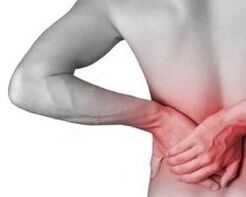
Prostatitis is an inflammatory process that develops in the prostate gland. Theoretically, every man is at risk of developing it, regardless of age.
But men are most susceptible to the disease, which is influenced by the following factors:
- Inactive lifestyle;
- Prolonged sexual abstinence or, conversely, an overactive sex life;
- Frequent constipation. Please note that only common stool disorders can cause prostatitis, and not episodic constipation;
- Hypothermia. To fall ill with prostatitis, it is not necessary to swim in ice water for hours, simply by sitting on a cold rock or in a cold state for a long time with inappropriate clothing;
- Chronic inflammatory diseases (e. g. , chronic bronchitis) or untreated focus of infection in the body (caries, tonsillitis);
- Chronic and acute urological diseases or previous venereal diseases (urethritis, gonorrhea);
- Work is not active. First of all, these are those who have to continue to sit at work, without the opportunity to get up and warm up (drivers, computer operators);
- Any condition that can depress the immune system. These include inadequate or inadequate nutrition, physical and emotional strain, persistent lack of sleep, chronic stress).
All of the above factors become very dangerous if a man is over 50 years old. Naturally, at this age, the hormonal background changes significantly, immunity decreases, various diseases appear, and besides, few men at this age lead an active lifestyle. For these reasons all men over the age of 50 must visit a urologist every six months.
How did the disease start?
As a rule, the first sign of developing prostatitis is an unpleasant or even painful sensation when urinating. Sometimes you must get up several times a night to go to the toilet. Some people see a doctor at the stage of development of the disease, although at this stage the treatment will be short -lived and effective.
After a while, a sharp pain of cutting, pulling or shooting appears in the genitals or perineum, sometimes the pain radiates to the penis or anus. Urination becomes frequent and painful, and the urine becomes more cloudy. Pain may appear during defecation.
Further, the body temperature can rise, sometimes men notice the release of droplets of white liquid penetrating from the urethra. As a rule, most men go to the doctor during the period of the disease.
What happens if prostatitis is not treated?
If, after the above symptoms, you do not see a doctor and start treatment, the disease will progress further. The temperature can rise to 40 degrees, the pain becomes very severe, urination becomes very painful, the outflow of urine is interrupted (flowing out of the urethra in a thin stream or drop by drop). The longer prostatitis is left untreated, the higher the likelihood of acute urinary retention and the development of acute renal failure. Timely examination should be performed, as symptoms similar to prostatitis are also present in cystitis and prostate cancer.
Diagnostics
After contacting a urologist, a study of the prostate through the rectum is performed, as well as analysis of prostate gland secretions. The procedure is not very pleasant, and sometimes painful, especially in the later stages of the disease. Sometimes because of this men do not want to see a doctor.
But in fact, the earlier you undergo the examination, the less painful it is. Moreover, palpation of the prostate itself is already a treatment, as it helps relieve congestion.
In the laboratory, glandular secretions are inoculated on nutrient media, the sensitivity of the microflora to antibiotics is determined and urine analysis is performed. Ultrasound is also performed to confirm the diagnosis. Often, treatment of prostatitis is not difficult for urologists, depending on timely treatment.
The early stages of prostatitis are treated at home. Patients are given antibacterial medications, baths, compresses and other thermal procedures on the perineum, as well as painkillers and prostate massage. The treatment is carried out for about 10 days. During treatment, you should also not eat spicy foods and alcohol.
Signs and treatment of chronic prostatitis
In chronic prostatitis, pain appears in the perineum, which subsides after walking or light exercise, there is a burning sensation when urinating. A man often does not sleep well and is easily upset.
If left untreated, chronic prostatitis can lead to pelvic inflammatory disease and even infertility. Reflexology and prostate massage are also added to the above treatments. Patients are recommended to lead a more active lifestyle, excluding spicy foods and alcohol from the diet.
Trust the doctor
You cannot try to make a diagnosis on your own, without a visit to the doctor. However, only a urologist can choose the optimal treatment regimen for you, based on test results.
While self -healing, you take antibiotics "blindly". This can lead to the transition of the disease into a chronic form. If the disease persists, hospital treatment may be required. In the hospital, the course of therapy will last 1-2 weeks, and possibly even longer.
To avoid complications, be sure to be checked by a urologist every six months.
Prophylaxis
Prevention of prostatitis includes the following recommendations:
- If you will be in the cold for a long time, choose appropriate clothing;
- Eat regularly and fully;
- Follow an active, sporty lifestyle;
- Use laxatives for constipation;
- Have a regular sex life, preferably with a regular partner
A large number of men suffer from prostatitis. This article provides basic information about the disease and explains why it is necessary to visit a urologist regularly.



























